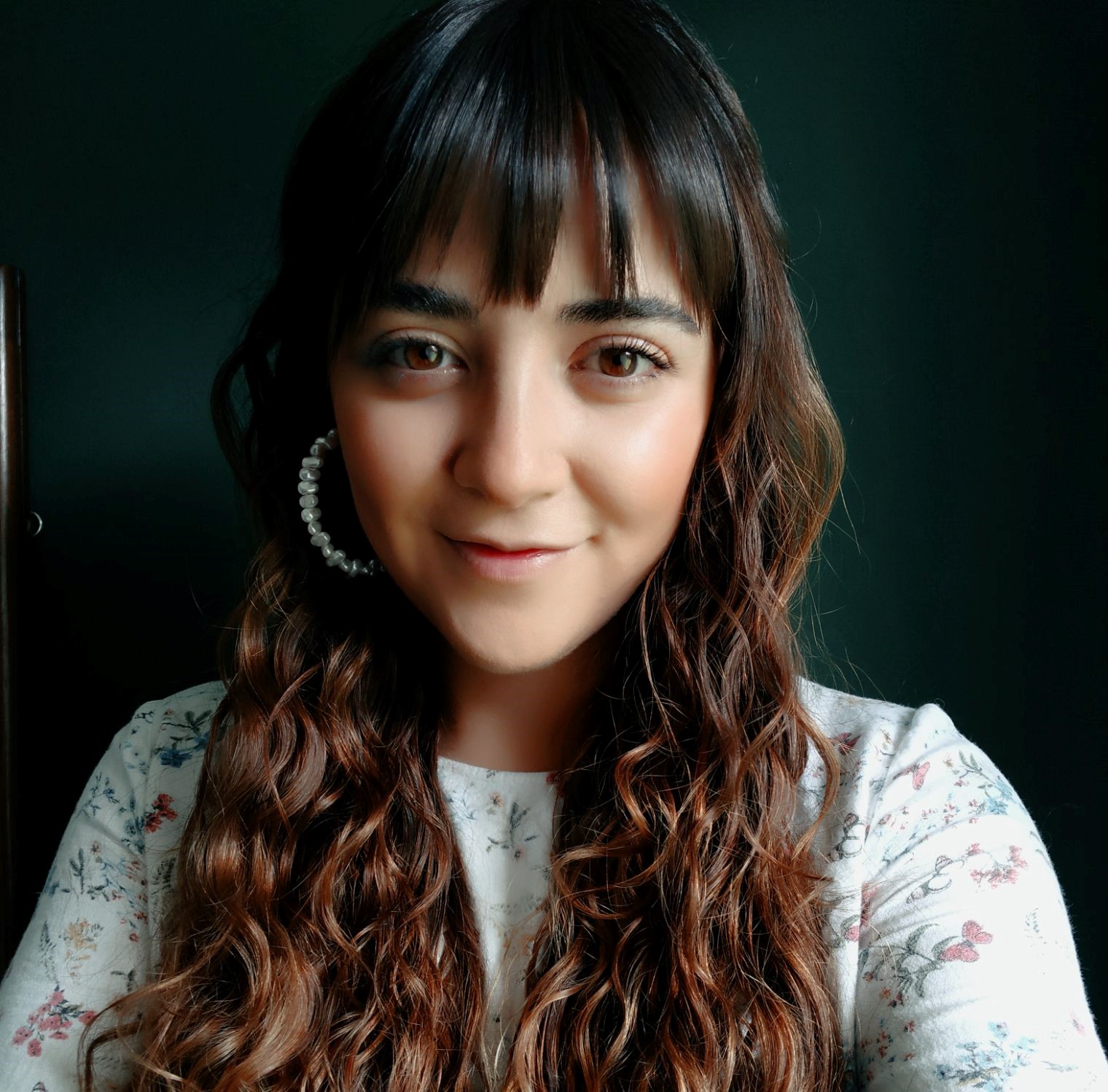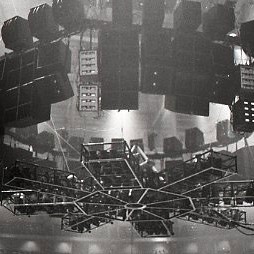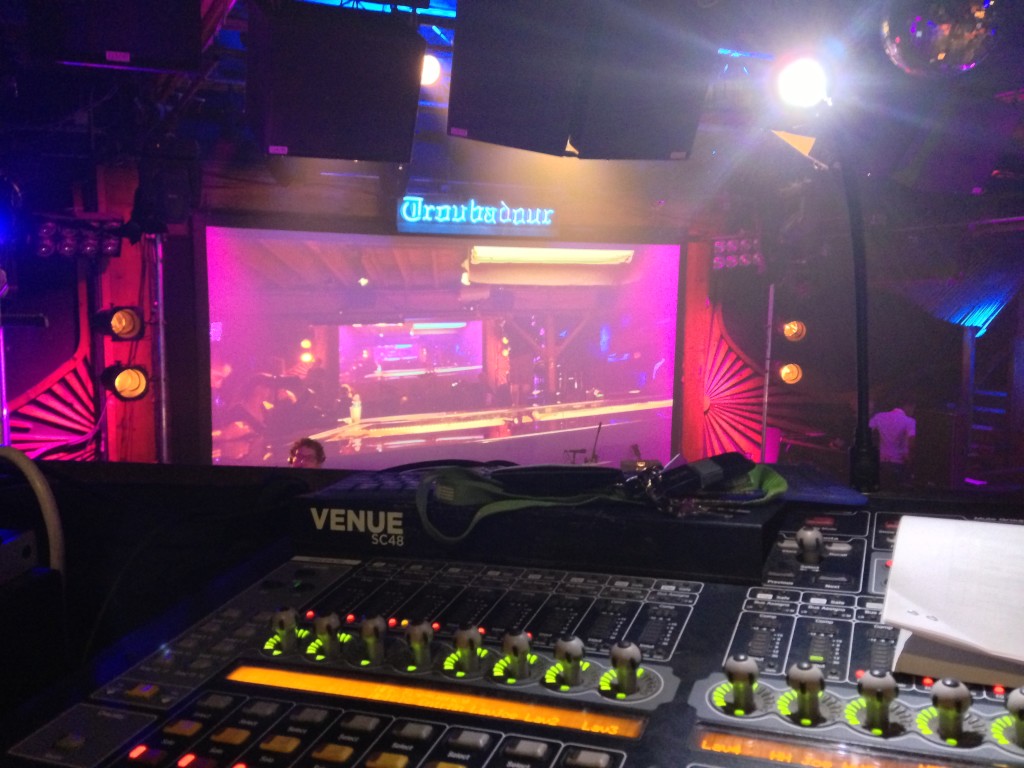Caridad Espinosa is a Quito, Ecuador-based mix engineer and producer as well as founder and lead instructor of Mix Like a Girl and co-founder and coordinator of the Beats by Girlz chapter for the city in which she resides. She earned her degree from Berklee College partner Universidad San Francisco de Quito College of Music in 2021. While there, she was awarded the Audio and Engineering Society AES (2020), API Saul Walker Memorial Scholarship (2020 & 2021), and was honored by Berklee College of Music for her work as a producer, composer, mixing, and recording engineer — while there, she also began the organization Mix Like a Girl.
When COVID hit, she perceived a void in women-centered education in music production and mixing, and set to work creating Mix Like a Girl, an affirming online space for support and mentorship with an impressive roster of audio professionals providing supplementary content for her students. She has been working as the Director of Musical Development of Ecuador since the beginning of 2022, helping artists to make and distribute music both nationally and internationally, and she continues to mix and master on a freelance basis.
Caridad and I spoke via Zoom, as we have since I began taking private mixing lessons from her in September of 2021. Her responses to the following questions have been edited for length and clarity.
Were any audio organizations particularly inspiring to you as you created Mix Like a Girl?
Yes. Actually, SoundGirls! September 2020 we were just [entering] COVID. Everything was weird. And I started looking for resources written by women because I found all of this material – tutorials, blogs, and everything – written by men. [Then] I came across SoundGirls, and I was like, “this is really cool.”
What have been some of the pros and cons of teaching mixing via Zoom?
How much access do students have to gear, programs and plugins, things like that. Because the normal way of teaching, the best way of teaching for me, would be at a studio, where I can show the plugins and we [can] listen together, getting the sound from the same source. That doesn’t happen through Zoom. I might have one kind of speaker and students have another kind. Or I have one kind of headphones, and they don’t even have headphones on sometimes. So that makes it tricky for a teacher trying to adapt, adapt to whatever material and gear the student has. And also, I think that has helped me a lot as an engineer because you shouldn’t get accustomed to being at an amazing studio like I used to have at college, that had, like three different pairs of speakers that I can test my mix on, and amazing headphones, and all of the plugins that I can imagine. Reality isn’t like that. You graduate, you go out [into] the world and try to mix things, and you don’t have a budget to buy all these amazing plugins. You don’t have a budget to be in a studio. So how do you adapt? Professionally, I’ve learned so much teaching through Zoom to students all around the world that have different possibilities and different [levels of] access.
What is the most common misunderstanding your students have about mixing?
That everything can be fixed in the mixing stage. They think that they can come with any kind of recording and it’s fixable. It’s like, the air conditioner was on. The whole recording. “We’ll take it out.” Yeah, sure. Do you have the plugins to do that? “No.” Things like that. They don’t use the proper microphones for vocals, for example. They record the amps with a bunch of noise and they don’t know how to clean that up. You have to take into consideration how important pre-production is, and how important recording is. That’s why I always tell my students the most important thing about the whole production stage — this being pre-production, recording, mixing, and mastering — is the musicians that you have. Because most of my students think that in mixing, you can even fix performance. And that’s impossible. So they get really frustrated when I’m like, “This has to be re-recorded. This has to have a feeling. This has to have the performance that I’m lacking.” [If not,] even if I have the most amazing gear for mixing and for mastering, I’m not going to be able to give that soul to the music.
You’ve mentioned how YouTube tutorials about mixing often contradict each other. What is a specific example of this that surprises or bothers you?
YouTube tutorials are amazing. You can learn a bunch of things. Watch tutorials, try to learn the most out of them, but you have to have some basics. Some tutorials will tell you you should compress first and then EQ. Some others will tell you to EQ first and then compress. My main problem with tutorials is that you can’t ask questions. If you have a problem, if you have a question or doubt or something, you’re going to go to another tutorial to try to [answer] that question that you came up [during] the first tutorial. And with that second tutorial, you’re going to come up with another question. And you’re going to start this snowball of just watching a bunch of things, and maybe [you still] don’t get the answer that you need for your specific project that you’re doing.
So that’s why, for me, it’s so important to have someone that knows a little bit more than you do, that has been in the music industry a little bit longer than you, [to] be your guide. If you even speak to two different engineers, you’re going to get different answers concerning EQ, for example. Or compression. Or any mixing topic.
You need to start developing your sense of what your sound is going to be, and what seasoning of yours you’re going to put into music. If you go into YouTube [for] “How to EQ a Snare,” a bunch of videos [for] “How to EQ a Snare” are going to pop up. You pick the first one, and maybe that snare is bigger than yours. And that snare was recorded with a much better microphone. And your microphone wasn’t that good, so you would have to tweak a lot more. And then, as a newbie, you get frustrated because it’s like, “I’m doing exactly what the video says, and it’s not sounding the same.” So, go into tutorials. Watch a bunch of them. But you have to be able to discriminate: What are you going to take from those tutorials? What is going to help you grow as an engineer, and what [can you] go without? Do it your way.
Tell us a bit about your experience with the music scene where you live. Is it inclusive?
The music scene where I live is almost non-existent. One of the main problems is that we have these couple of studios that manage all of the artists that most are like, “This is my friend. This is the friend of my friend. And if you are not in the inner circle, then [you have to] build your circle and try to figure out how to do [things].” Or, “If you have a bunch of money to come to record in my studio, come record in my studio,” and this [happens] with recordings, with concerts, with festivals, with a bunch of things. And as I’m from Ecuador, sadly, we are a bunch of years behind the US, Canada, and Europe. So being a woman in the music industry here, it’s hard. Men have these comments like, “Oh, you made it in the music industry, because you think like a man.” Or, “You act like a man.” And it’s like, “No, this is me.” I’m not neurotic, I don’t have an attitude. I’m just doing my job. And those things here are still kind of misunderstood and misconceived. And you still see just a bunch of men doing the job. So yeah, concerning how inclusive it is, I would say that we have a long, long, long way to go.
Which mentor has made the greatest impression on you, and how did you meet?
My first audio engineering teacher, his name is Gabriel Ferreyra. I was actually [majoring] in performance, and I took [his] engineering class just because I needed one extra class. And the way that he talks about music, the way that he does his job — teaching and being like, “Okay, you want this? You’re going to get this. You’re going to learn about this, and you’re going to be good at it—” he has been just amazing. He has helped me with Mix Like a Girl, he has [taught] for [the] Mix Like a Girl summer program, the film scoring and post production program. He knows that he has been my biggest mentor, and I hope that he continues to be. Everything that he has taught me has given me the tools to build everything that I’m doing right now with Mix Like a Girl or with my personal projects. In every single way he has been involved, in any way possible. Small or big, he has been there. I’m really, really grateful for him and for my school. USFQ has one of the best programs in Latin America, and I just know that if it wasn’t [for] all of my teachers, I wouldn’t be where I am today. I wouldn’t [have] come up with this project because they opened my mind to things. It’s amazing because right now, most of them are really, really close friends. We keep working together. For me, that’s so important, and I’m really, really grateful for that.
Who are some fellow audio professionals doing work that you admire right now?
Lu Garibay, she’s actually another teacher [from] Mix Like a Girl, and we’ve been working on the book together. She’s amazing. She just does it all. She does vocal production recording and her work ethic… it’s just on point. She’s so easy to work with. If I need any help in any kind of way, she’ll be there. I’m trying to be the same way with her.
And I would have to say, most of my students are doing amazing work right now. They are really getting into music production. And these students — that maybe were with me, like, two years ago — now they are like, “Hey, can you check my mix? Hey, can you master this?” And I’m like, “Sure! Let’s do it.” And it’s so fun to watch them. They were beginners, they knew nothing about this. And now [to] start working with them, being part of their projects, is amazing. I love it, I’m so proud.
What are you most excited about for the future of Mix Like a Girl?
This is something that I have been thinking about a lot this week because I was working for the Ministry of Culture here, and everything went downhill last week. And I was getting really scared. Like, “What am I going to work on? I just lost my job.” And I was like, “No, this is a great opportunity to work on Mix Like a Girl. This can be huge.”
The thing that I’m most excited about is the book that I’m planning on releasing [in] December. I just have one chapter left to write, and then we’re going to work on graphics, distribution, and everything. So, hopefully, [by] December 2022 the book is going to be out. Right now that’s what my main goal is: working on the book and giving people — giving my students, giving anyone who wants to get into the music industry — a tool to work with. Don’t watch 1,000 tutorials. Read a book!
Maybe it’s going to make more sense. That is basically everything that I would have needed when I was a student. Things are explained in easy terms, just like if you were talking to a friend, a friend who maybe has a little bit more experience than you. I want this book to be kind of your mentor, to help you through this, and [to] help you pick the people that you’re going to be working with — that’s the most important thing ever. You can have all the money in the world, you can have the most amazing studio, but if you don’t have a good team to work with, it’s going to be hard. Money comes, the projects come, but I have been working on building this group of people that I can trust and that I can work with. I want Mix Like a Girl to be that: just a bunch of people — not just girls — a bunch of people with the same goal [of] making music better, making music that touches you, that really matters.
Thank you, Caridad.



